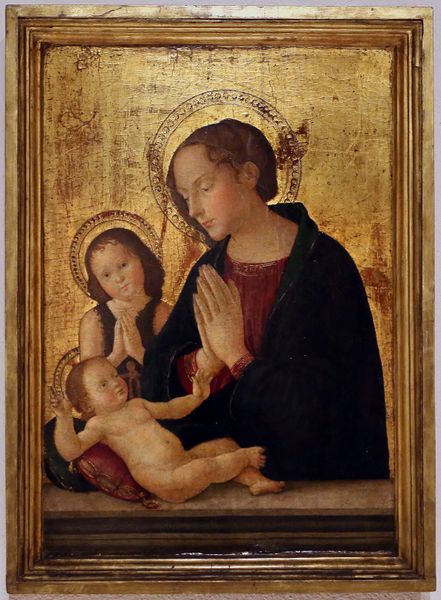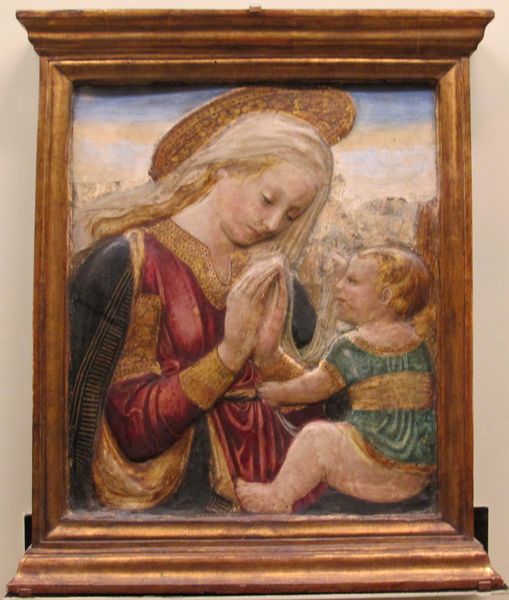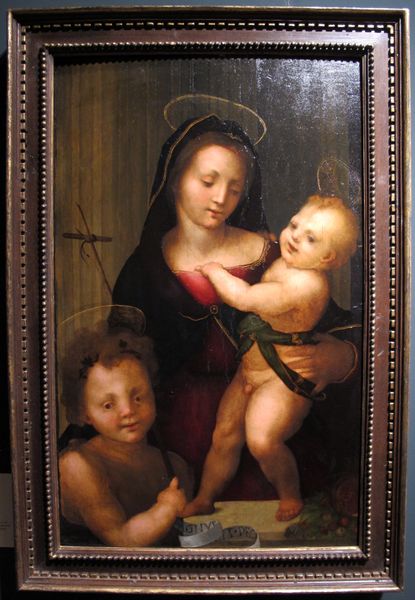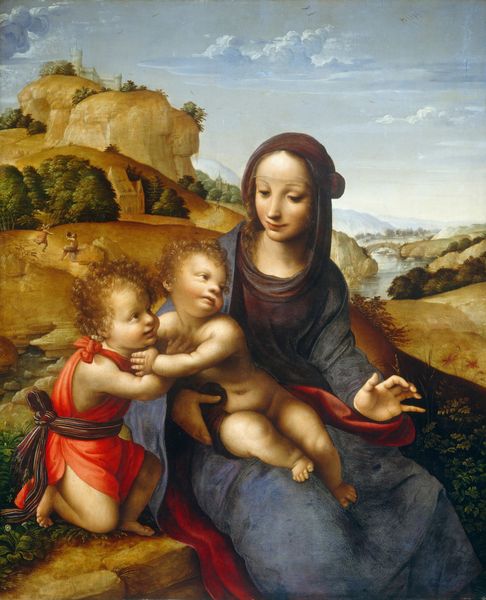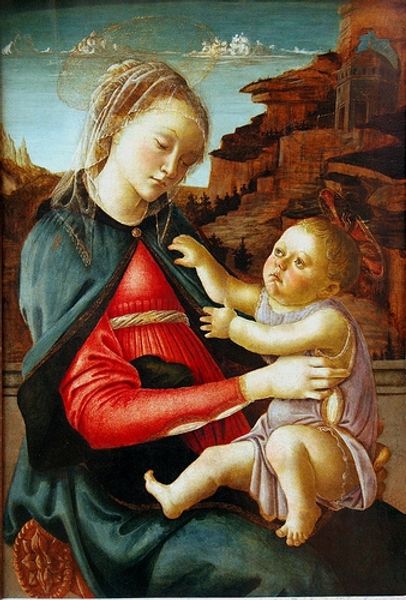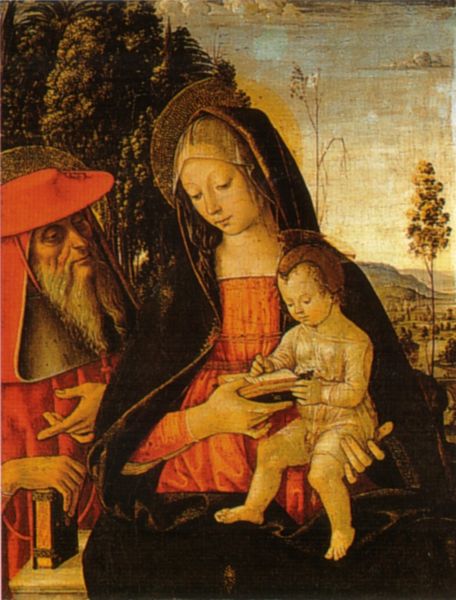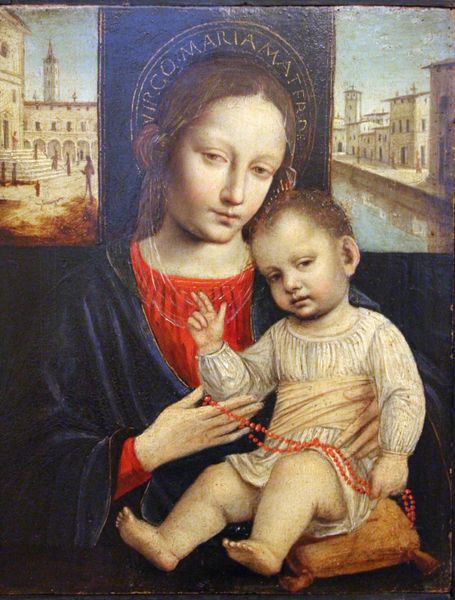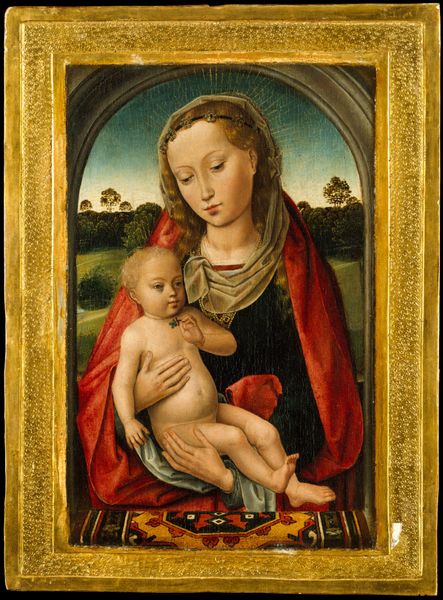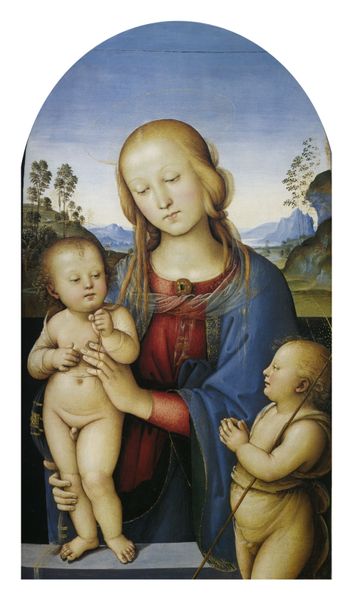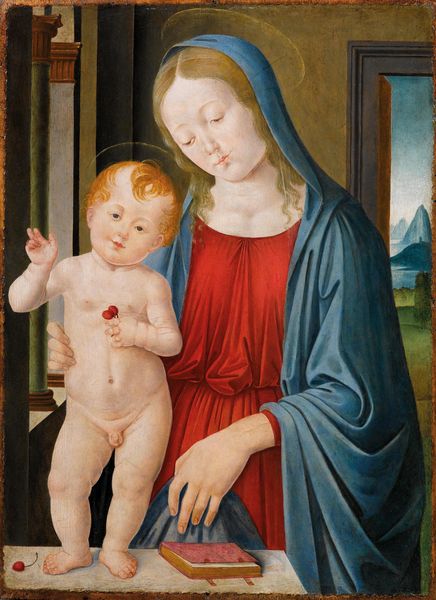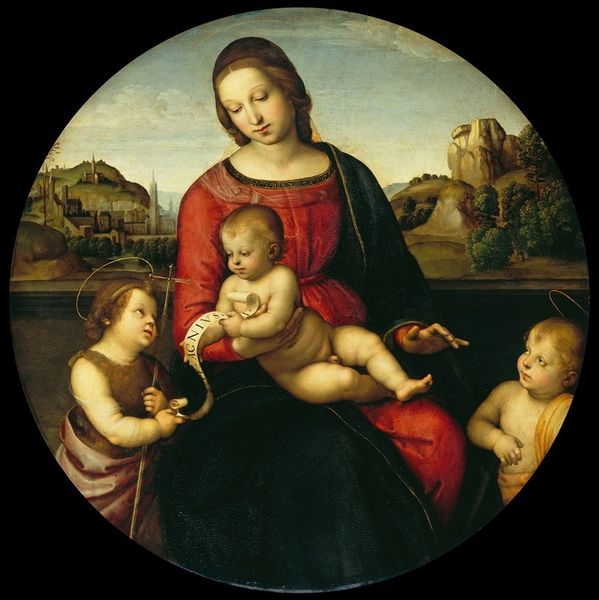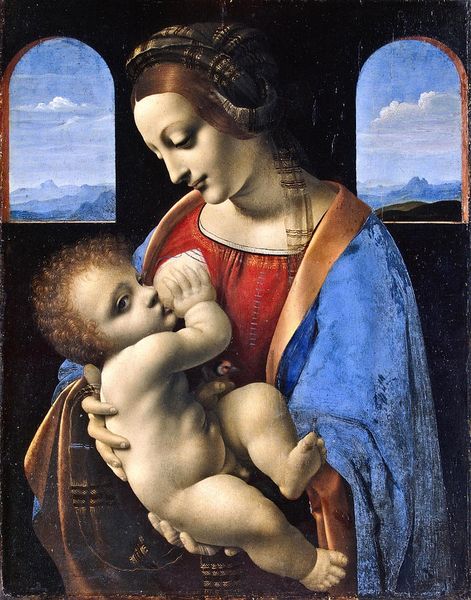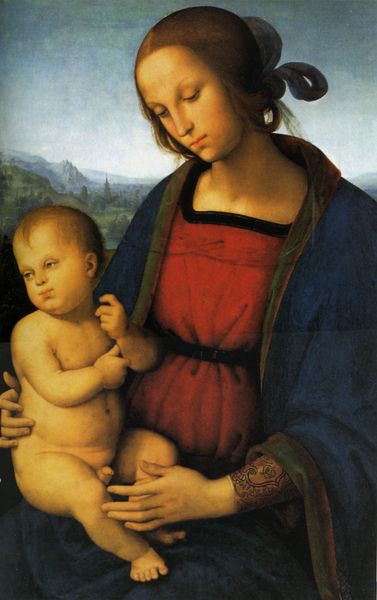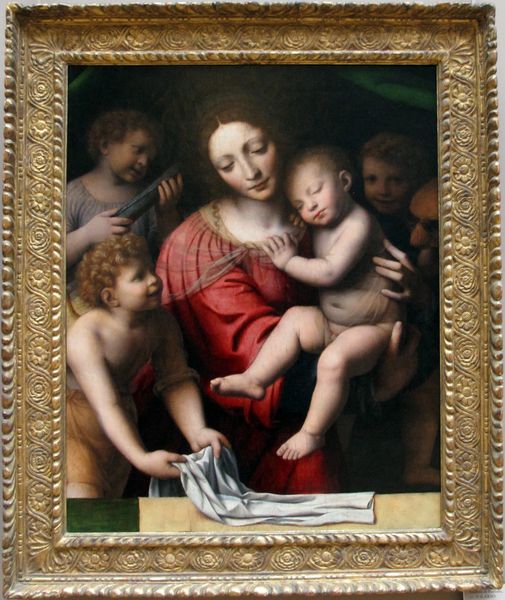
oil-paint, fresco
#
portrait
#
allegory
#
oil-paint
#
sculpture
#
figuration
#
fresco
#
oil painting
#
history-painting
#
italian-renaissance
#
watercolor
Copyright: Public domain
Mariotto Albertinelli’s “Virgin and Child with Angel” was created with oil on wood panel, sometime around the early 16th century in Florence. Oil painting, especially on wood, was a process demanding patience and skill. First, the wooden panel would have been carefully prepared, smoothed, and primed. Then, Albertinelli would have mixed his pigments with linseed or walnut oil, building up layers of color to achieve the luminous quality we see here. The rich reds and blues, sourced from minerals and plants, were expensive commodities that added to the painting’s value. This wasn't just about artistic expression; it was a highly skilled trade, deeply embedded in the economic and social fabric of Renaissance Italy. Paintings like this were luxury goods, commissioned by wealthy patrons. The very act of painting—the labor, the materials, the time invested—spoke volumes about power, wealth, and faith. By examining the materials and processes, we gain a richer appreciation of how this artwork was made, and how its value was perceived in its time.
Comments
No comments
Be the first to comment and join the conversation on the ultimate creative platform.
